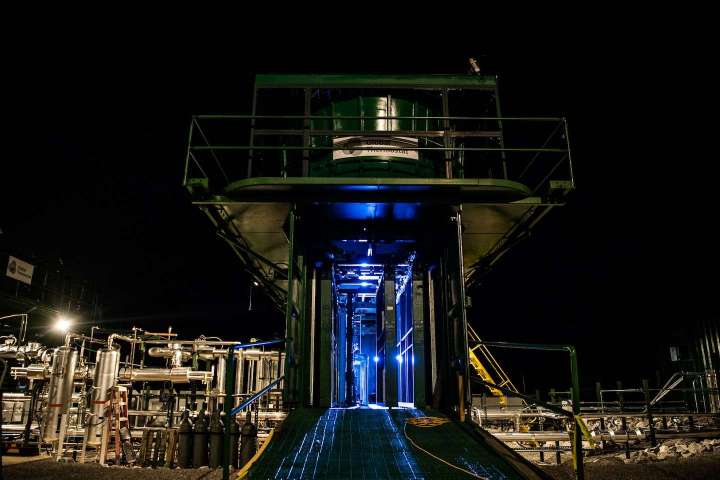The Inflation Reduction Act could push climate change tech into the future

To the naked eye, direct air capture machines look like shipping containers stacked on each other, dominating open swaths of land. They are designed to eliminate carbon: either by sucking it out of the air and storing it deep underground or by converting it into something solid, removing it from the atmosphere permanently.
The technology has caught the attention of the Biden administration, Tesla and SpaceX CEO Elon Musk and companies such as Alphabet and Meta. Proponents say carbon capture technology is a creative and essential way to rapidly slow the Earth’s warming and reach net-zero emissions by 2050. Critics say it’s more important to focus on reducing greenhouse gases by changing behaviors in society.
Still, the spending bill offers companies a tax credit of $180 per ton of carbon they capture, up from $50 per ton — a boon for the industry. To qualify, projects would need to remove at least 1,000 tons of carbon, dropped down from a more restrictive 100,000 tons.
Adrian Corless, the chief executive of Carbon Capture, based in Pasadena, Calif., said these changes will help his business scale up. Currently, he said, it costs his company roughly $400 to $500 per ton of carbon captured to operate.
Having a larger tax credit makes his business more attractive to investors and less reliant on philanthropy dollars, he said. Dropping the project size cap to qualify allows his company to partner with states, corporations and other entities on smaller projects across the country.
“It allows us to enter the market and have a business starting in 2023,” he said. “And it allows us to quickly drive our volumes.”






